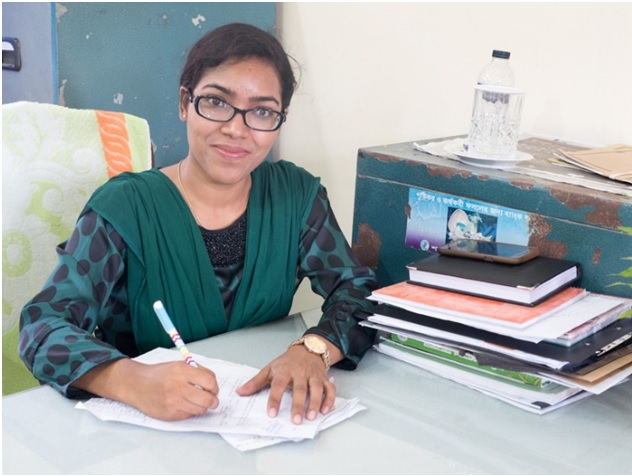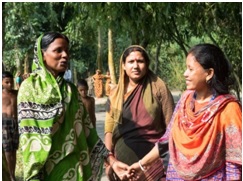
Bangladesh is one of the most vulnerable countries to climate change. The increasing rainfall in recent years has disrupted the daily lives of its population, particularly affecting – both men and women - farmers. In Kurigram district, Manoka and Rafika are working jointly with CARE to help local communities build resilience to climate change.
Two women who have pledged to strive for sustainable agriculture in Bangladesh
Manoka is a dynamic 28-year-old woman. Now a teacher in the village where she grew up, she decided to get involved with CARE and take up anew challenge. She has been helping local communities for the past two years - especially farmers - to help them adapt to climate change.
It is often difficult to operate in a country where women constantly suffer discrimination and where agriculture is strongly shaped by patriarchal traditions.
“In agriculture, being a woman is not always easy, since the power of decision rests with men. My role is to show farmers that there are concrete and effective ways to fight against the effects of climate change”, she says.
Rafika, a young woman who works for local authorities, has encountered the same obstacles. She is the only woman that works in her family. Alongside CARE, she trains farmers on the latest agricultural technologies and informs them about aids granted by the government.
Yetwomen’s role as agents of change is fundamental. Their impact supplements men’s impact at creating change. Among other things, women can provide women farmers with special support, as their work is not always given due credit.

Women's engagement to change attitudes
CARE supports the engagement of the women of its own teams, so they can enjoy the same rights and have the same opportunities as men. Manoka and Rakifa’s dedication has helped raise awareness of inequalities in the district.
“CARE's work has contributed to change mentalities. Women are now explicitly recognized for their work, and men seem more attentive…more open-minded,” Rafika explains. She is also happy to see the families be more food secure through the adaptive agriculture practises.
Manoka and Rakifa have thus managed to find their placeand still have a real impact on the lives of farmers in Bangladesh, which is a highly rewarding result for Manoka, as she puts it:
“I have noticed real changes in the communities benefitting from the project. Today, many families can eat three times a day, which was not the case just a year ago. I am proud to contribute to changing lives through this project.”
*Focus onWhere the rain falls
“Where The Rain Falls-” is the third phase of a project initiated in 2011 across 8 countries - including Thailand - in partnership with the United Nations University (UNU). This research phase highlighted how changing rainfall patterns rank high among the key challenges facing rural communities, and affecting their standards of living (cf.onlineglobal study).
Since 2014, Community-Based Adaptation projects has been ongoing in India, Thailand,andBangladesh.